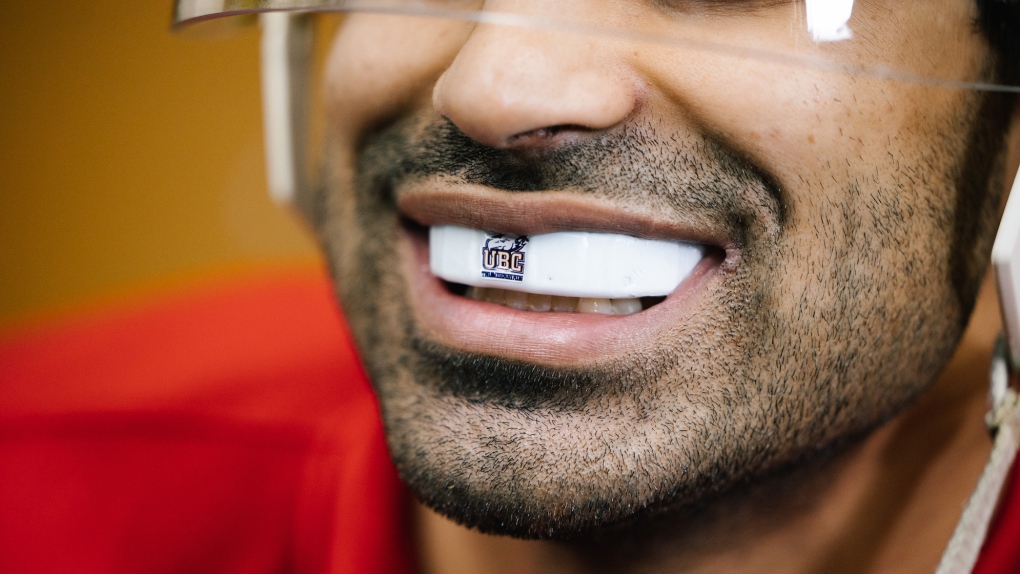
High-tech mouth guard will track head impacts of B.C. university hockey players during playoffs
CTV
Concussion researchers at a B.C. university say local hockey teams will wear high-tech mouth guards during the upcoming playoff season to track head impacts.
Concussion researchers at a B.C. university say local hockey teams will wear high-tech mouth guards during the upcoming playoff season to track head impacts.
The study, led by a team at the University of British Columbia, will look at concussions in both male and female hockey players. Researchers say a mouth guard is ideal because it sits closer to the skull than some other sensors do, like when they're in a helmet.
Dr. Lyndia Wu is leading the study, and is an expert in brain injury biomechanics. While completing her PhD at Stanford University, Wu helped develop a mouth guard with motion sensors, which was later used to study concussions in U.S. college football. Now it's being used for another sport.
"We started a five-year collaborative study with the UBC Thunderbirds men’s and women’s hockey teams with two main research goals: to understand how the brain changes after a concussion in sports and how repeated impacts may lead to longer term brain changes," Wu said in a news release.
The mouth guard will capture data including the speed and direction of an impact and how strong the blow was.
Graham Thomas, head coach of the men's hockey team at UBC, said concussions tend to be a "part of the game," because of how fast hockey is.
"There’s just so much that can happen," he said. "We’re doing this (research) for the bigger picture and for the benefit of those who come after us."
